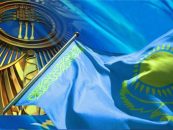By Daniel Pommier Vincelli, Sapienza University of Rome
Reconstruction speaks Italian
Italy has been a close friend of Azerbaijan during the 44 days patriotic war to liberate Karabakh. Azerbaijan rewards friendship: Italy along with United Kingdom and Turkey will be a leading partner in the long and complex task of postwar reconstruction. This is the message clearly stated by President Ilham Aliyev in scientific meeting held at the Azerbaijani Diplomatic Academy on 13 April, 2021. Before an international academic audience conveyed in Baku, and partially participating online due to the COVİD restrictions, the Azerbaijani head of State recognized that the Italian Republic was impartial during the conflict with Armenia and strictly adhered to the principles of international law and territorial integrity. In December 2020, few weeks after the end of hostilities and the signing of the tripartite agreement of 10 November, a delegation of the Italian Parliament chaired by the vice president of Chamber of Deputies the Hon. Ettore Rosato visited not only Baku but also Ganja and the liberated territories. The Italian MPs paid a visit to the ruins of Agdham, the ghost city struck with minefields and left to ashes during the first war with Armenia in 1992-1994. The delegation consisted of members of Parliament belonging to different parties, both governmental and pro-opposition, and this mixed composition confirmed that in Italy a widespread support exists for Azerbaijan. The Italian companies, stressed president Ilham Aliyev, can bring a valuable asset to the reconstruction plans based on their vocation: city planning, energy, technology also art, culture, fashion and luxury goods in a more far and advanced phase. Italian economy, the so called “made in Italy”, had reached Azerbaijani market since early 2000s. The end of the war opened a new phase. The large financial effort by the Azerbaijani government for reconstruction paves the way to a further Italian contribution. Italian most successful companies often work on International scale and Italian professionals and technicians travel extensively abroad on business purpose. Two single but significant examples of the Italian role are the recently opened “Victory Museum” in which Italians architects are involved and the project for the new Shusha Mosque. The beacon of culture of Azerbaijan will host a large mosque designed by a joint team of Azerbaijani and Italian architects. The road to reconstruction is a long path, concluded President Aliyev by addressing the international scholars and experts of Caucasus. It will take years for Internal Displaced People to return years because the territory must be cleared by minefields, infrastructures must be created, social and economic life is to be restored after decades of depletion and abandon during occupation. In this complicated challenge Italian ingenuity can be crucial.
An Ancient Friendship
Links and good relations between Italy and Azerbaijan date back to the origins of Azerbaijani statehood and history. The most Eastern archeological evidence of the Roman empire is located in the Gobustan national park, few kilometers far from Baku; during Middle Age and Renaissance commercial relations were frequent with Italian regional States (like the Venetian Republic) and many Venetian travelers visited Safavid Empire, including territories of present-day Azerbaijan. When, after the dissolution of the Tsarist Empire, Azerbaijan proclaimed its first independence in 1918 and sought international recognition, Italy was among the first great western powers to recognize the Azerbaijani Democratic Republic. An Italian military detachment was dispatched to Caucasus and a diplomatic representative was appointed by the Italian Kingdom. New trade agreements were signed between Rome and Baku and Italy would have benefited by the selling of Azerbaijani oil. The Soviet invasion of 1920 brought to a sudden end of the Azerbaijani independence and Italians along with other Western representatives were removed from Caucasus. Only after the second independence was achieved in 1991, diplomatic relations between Italy and Sothern Caucasian Republics were restored. Azerbaijan went through a difficult path during the first years of post-independence. The occupation of national territory by Armenia, the forced displacement of around 1 million of inhabitants from the occupied territories, the economic crisis and the social turmoil: only after 1994 the new elected President Heydar Aliyev was able to restore stability and to modernize the country. Azerbaijan became a large oil exporter and thanks to the so called “contract of the century” the western oil markets opened to Azerbaijani exports.
A Multi-dimensional partnership
After 2010 Italy, in need for new energy supplies given the political crisis in Middle East, became the largest buyer of Azerbaijani oil. Political, economic, and cultural relations intensified in the last decade. Exchanges between the two countries are frequent and cover a wide range of issues. Azerbaijani students choose Italy for studying abroad, tourism was rising until the pandemics, Italian restaurants and shops opened in the Baku center, large Italian companies like Leonardo and Ansaldo signed procurement contracts. A turning point was the Trans Adriatic Pipeline, an extension of the Trans Anatolian Pipeline: a gigantic infrastructure privately funded to carry Azerbaijani natural gas to southern Italy. Italy was selected as final destination for the Caspian gas. From 2013 to 2020 the TAP was built and made operational amid local protests in the landing area. After a brief support to the protesters even the largest Italian party (according to 2018 elections), the “Five Star Movement”, switched side and welcomed the opening of TAP activity. State visits were held at the highest level. In Summer 2019 the Italian President of the Republic the Hon. Sergio Mattarella visited Azerbaijan and President Aliyev paid an official visit to Rome in February 2020, few days before the explosion of COVİD 19 pandemic and the subsequent lockdown measures in both countries. In that occasion new and important agreement were signed between the two allies. As the leading Italian expert on Caucasus Carlo Frappi noted that agreement went far the usual and well known economic relations: “the relationship moved far beyond its traditional driver, the energy sector, to embrace other strategically important areas such as defense, infrastructure, and investment (…) However, while the agreements between Italy and Azerbaijan are economically significant, it is their political dimension that could bring about the greatest qualitative leap in the relationship. The joint declaration affirms the parties’ support for the peaceful resolution of the Nagorno-Karabakh conflict based upon the principles of sovereignty, territorial integrity, and the inviolability of national borders – that is, the pillars of international law on which Azerbaijan has traditionally based its claims against Armenia.”
Italy and the Nagorno Karabakh war
The Italian attitude during the 44 days war was the final step in cementing friendship and strategic partnership. Despite the pressure of Armenian lobbyists and intellectuals close to the Armenian community, the Italian government led by Giuseppe Conte and formed by a centre-left coalition remained coherent. Italy, as a Minsk group member since 1992, supported peaceful a resolution of the armed conflict between Armenia and Azerbaijan and retained a deep respect for the principle of territorial integrity, which was claimed by the Azerbaijani side. Despite the Armenian propaganda about “neo-Ottoman expansion” of the Turkish president Erdogan, a staunch ally of Azerbaijan, or even worst the presence of “jihadist volunteers” in Karabakh hired by the Turks, Italy and Italian government resisted to the spread of fake news and maintained an adamant position. Now is time for a new history in the Italian-Azerbaijani relations.






